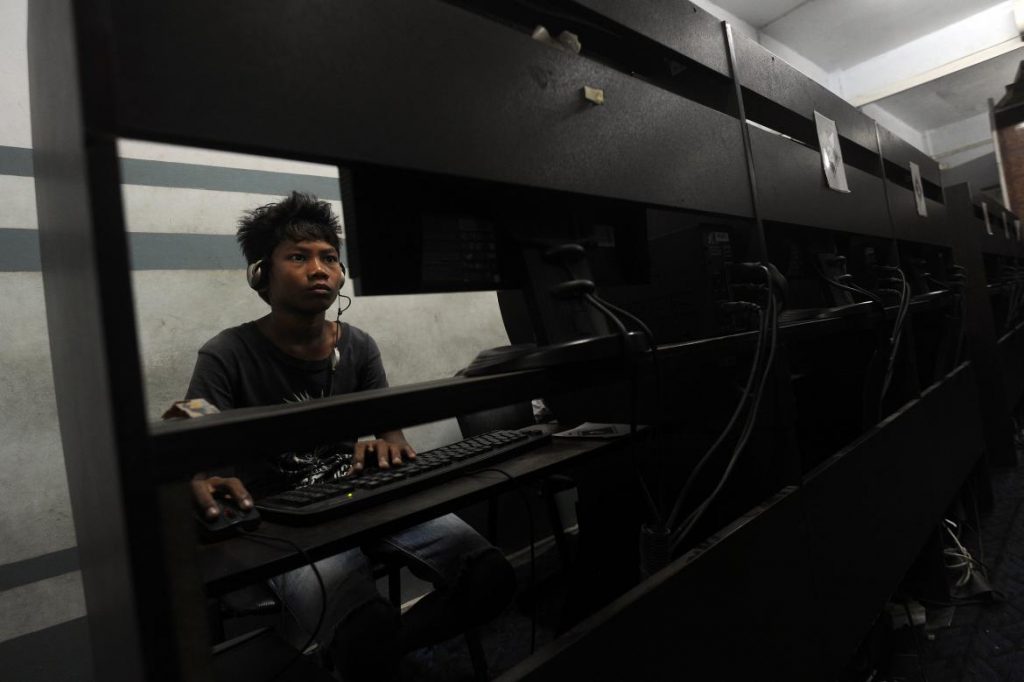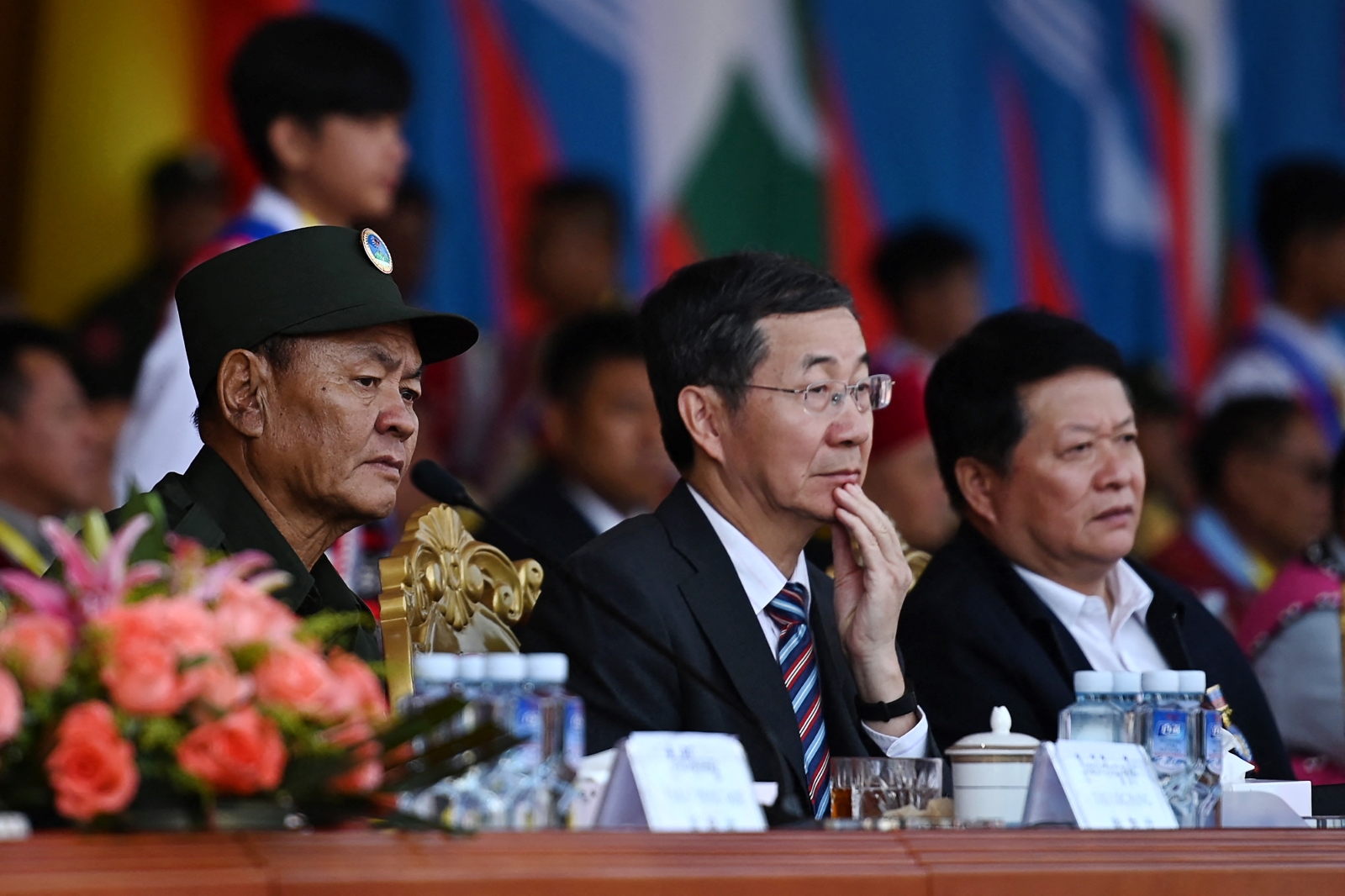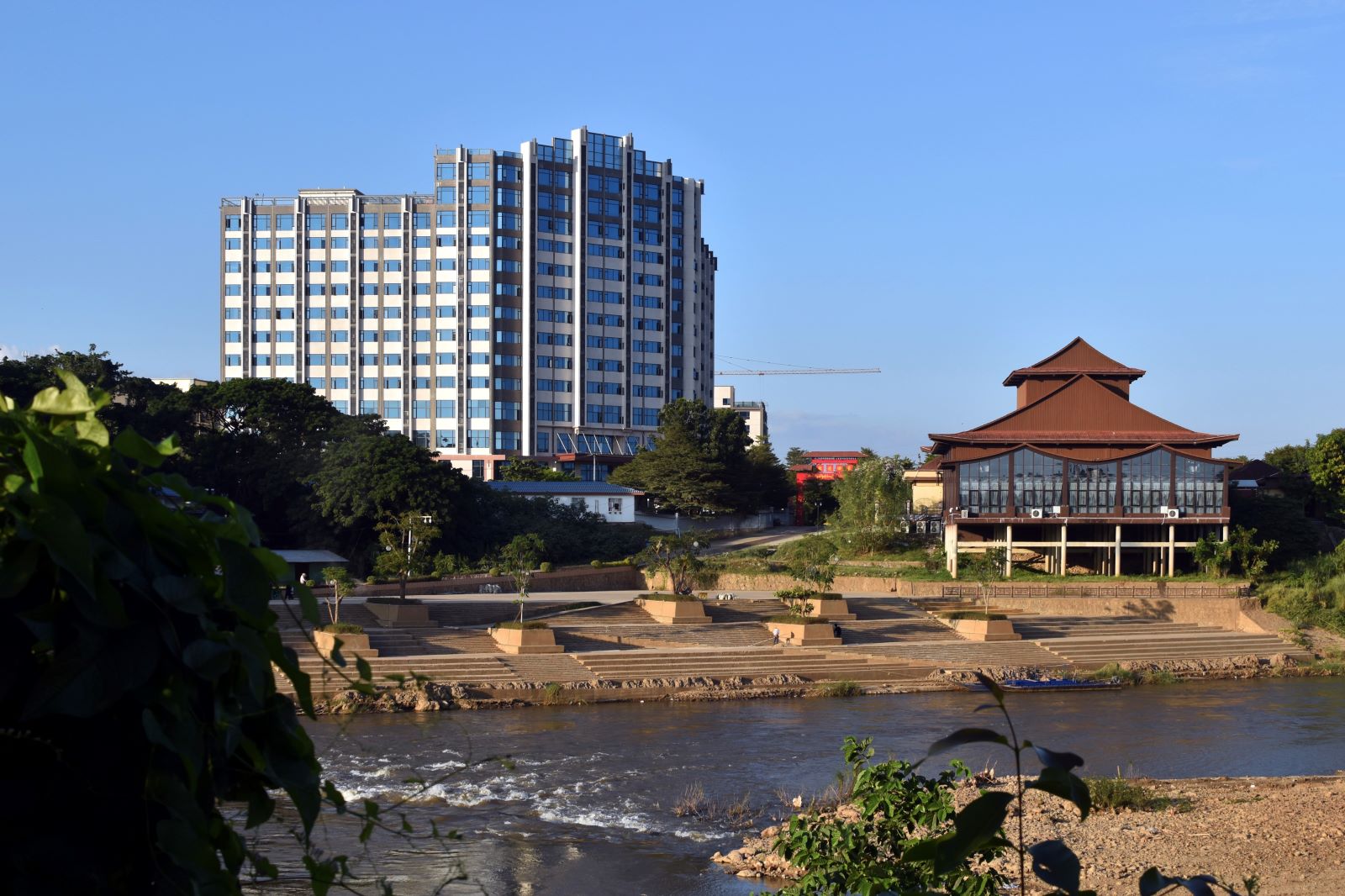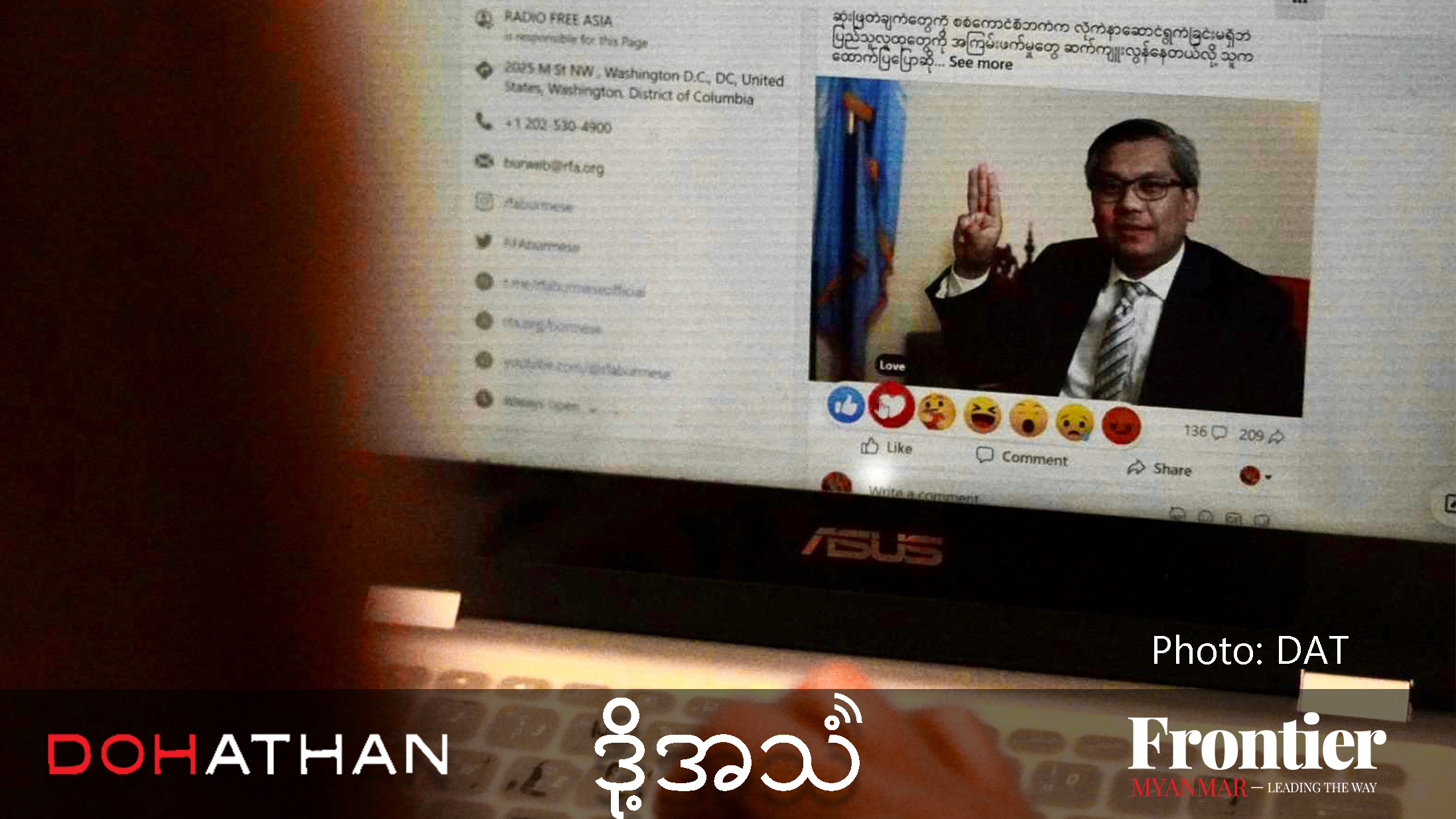Better internet access has boosted Myanmar’s hacking community, and some of its members are waging a cyber war against the country’s neighbours.
By JAMES COE | FRONTIER
“We don’t attack Myanmar, we mostly hack Bangladeshi and Indonesian websites” said a Myanmar hacker who calls himself “CyberRoot”.
For the last three years, CyberRoot and countless other hackers have been fighting an underground cyber war against hackers in Bangladesh.
“They attack our government and job websites. They change web indexes, deface them and delete all of the data. They want Myanmar to look bad and so we retaliate,” another hacker, known as “Mr.$ud0”, told Frontier. “I have to protect Myanmar,” he said.
The hackers took pride in detailing their cyber strikes against Bangladesh, but none showed similar enthusiasm when asked about their activities within Myanmar. “OK. Good luck with the other interviews,” was one response to a question about whether they had hacked Myanmar government websites.
Support more independent journalism like this. Sign up to be a Frontier member.
Hundreds of websites have so far fallen victim to the cyber war, including those of the Myanmar President and Bangladesh Air Force. “If we want to give a message we will target the news and media websites. If we want to pay back for them hacking a Myanmar site, we will hack their government websites,” one hacker said.
The most common tactics used by both sides are Distributed Denial of Service (DDoS) attacks and defacing websites. In the world of hacking, both are seen as relatively simple, albeit effective, attacks.
A DDoS attack is when somebody directs the internet traffic of a large network of computers, which have often been infected with malware, to repeatedly visit a single server or website. The sudden increase in traffic will overwhelm the website and it will eventually crash. More complex DDoS attacks can last for weeks at a time.
At the heart of the cyber conflict is the treatment of Myanmar’s Muslim minority, and particularly the estimated 800,000 Rohingya living in Rakhine State. The Myanmar government, and most citizens, call the Rohingya “Bengalis” because they believe they are illegal immigrants from Bangladesh.
“They [the Bangladeshis] say we kill each other but we don’t. We respect each other. But there are no Rohingya in Myanmar,” CyberRoot said.
The tipping point for the cyber war was the violence that erupted between Buddhists and Muslims in Rakhine in June 2012. The unrest left nearly 200 people dead, according to government figures, and displaced about 140,000 people, most of whom are Muslims.
“Myanmar is killing innocent Muslims in their country…This injustice over the Muslims and attack on Bangladeshi cyber space has forced us to react,” the Bangladeshi Cyber Army said in its declaration of “war” against Myanmar on June 19, 2012. Soon after, the BCA forced several prominent Myanmar websites offline, including that of the Ministry of Foreign Affairs. It defaced many more, including those of several hotels and tourist operators.
The next day, Myanmar hackers responded. About 92 Bangladeshi government websites were taken offline, the website of the University of Chiattagong was defaced and a large amount of data was reportedly deleted from BDNews24, a major Bangladeshi news website. “Stop lying that you don’t know about ‘Rohingya’ and accept your own people in your land, don’t try and invade our land of Burma,” wrote one Myanmar hacker after the attack.
In 2013 the cyber war briefly attracted international attention when the global hacking collective, Anonymous, turned its crosshairs on the Myanmar government. Anonymous is a loosely associated international network of hacktivists most recognisable for its use of the stylised Guy Fawkes mask made famous by the movie “V for Vendetta”.
Although decisively against the Myanmar government, Anonymous does not profess to be on either side of the conflict. “If these [Myanmar] hackers are attacking the Bangladesh government then they are attacking another government that oppresses Rohingya, so they’ve missed their target in their ignorance,” a spokesperson for Anonymous told Frontier.
Myanmar’s cyber war shows no signs of abating but there is no indication it has yet gone beyond simple hacking techniques.
“We began in 2013 in response to rumours of future attacks planned against the Rohingya,” he said. “Since then our goals are to highlight or expose crimes committed by the government. Periodically there have been some really great successes but it is also very difficult to produce sustainable change in a world bombarded with disaster after disaster.”
The initial offensive by Anonymous was immensely disruptive. Within hours of its planned day of action on March 24, 2013, 14 government websites were taken offline, including those of the President’s Office and the Ministry of Information. Several more were defaced with anti-government slogans. The group also raised the profile of the Rohingya by popularising the hashtag #RohingyaNOW, which at its peak was used 24,000 times an hour. On March 24, 2013 it became the top trending hashtag worldwide.
“We think we managed to help bring the issue to the forefront, and one of international concern,” the spokesperson for Anonymous said. “We’ll stop when the Rohingya have citizenship and all of their rights restored and protected. And even then we will keep fighting for the people of Burma.”
Anonymous’ activities targeting Myanmar have declined but it maintains a watchful eye. In June 2015 it launched “Operation 969” against the hardline Buddhist nationalist movement, 969, and its leader, Ashin Wirathu, who is also a prominent member of the Ma Ba Tha, the Association for the Protection of Race and Religion. In response to Anonymous’ call, a group named the Myanmar Atheist Godless Hacker Group attacked U Wirathu’s Facebook and Gmail accounts. “These are Burmese activists who wanted to raise awareness of what they thought was state-sponsored racism, and attempts to divide and stir hatred among the people,” the Anonymous spokesperson said.
Anonymous also spoke of how the cyber war against the Myanmar government is being increasingly carried out by domestic hackers. “Among Rohingya and Burmese Muslims there is a lot of support. There is also a lot of support coming from Kachin and Karen, though they may express it more privately,” the spokesperson said.
The cyber conflict remains a genuine threat to Myanmar, especially as the country increasingly turns to e-commerce. “They are quite amateur at the moment but the attacks are becoming increasingly sophisticated,” said Myanmar-based cyber-security consultant, Doron Landau. “Proper cyber security does not yet exist in Myanmar. That is why cyber crime is so dangerous at the moment,” Mr Landau said.
“These hackers who take part in any so called ‘cyber war’ justify themselves by saying that they’re not stealing money. But they are still criminals and when they realise how much money they can make, who knows?” he said.
Even with its short history of e-commerce, Myanmar has already been a victim of serious financial cyber crime.
In 2014 fraudsters managed to steal K25.2 million by cloning the cards of ATM users. In November 2015, the Carter Center reported to police in Yangon the theft of US$42,466 (about K55 million) by a fraudster who had hacked its address and that of the office it was using in a city hotel. The center had opened the office to support its activities as one of the international organisations that deployed observers for the November 8 general election.
Myanmar’s cyber war shows no signs of abating but there is no indication it has yet gone beyond simple hacking techniques. “There will be a major fraud there, today or tomorrow, it will happen,” warned Mr Landau. “Whether it’s these hacktivists or not, it will happen.”
Title photo: A young man at an internet cafe in Yangon. (AFP)







